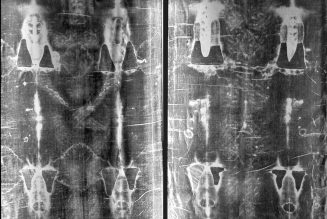
Strolling through the Vincent van Gogh museum in Amsterdam, I stumbled on a disarmingly simple oil on canvas that has since hung prominently in the gallery of my mind. A Bible opened to Isaiah 53 lies next to a well-worn copy of Emile Zola’s La Joie de Vivre on a wooden table. An extinguished candlestick – a typical symbol of death in the 17th-century Dutch vanitas tradition – is in the background, suggesting the fleeting nature of human existence.
The Bible is uniformly recognized by art historians to belong to van Gogh’s father, Theodorus, a minister whose love for the great prophet Isaiah was widely known. Zola’s La Joie de Vivre was an example of French naturalist literature. Together they speak to van Gogh’s lifelong attempt to reconcile his traditional Christian past to modern sensibilities.
It was a reconciliation he was never to achieve.
The problem van Gogh wrestled with is shared by many and, as it was with the great Dutch painter, runs deeper than reconciling the ancient to the contemporary. What is the place for the spiritual in a world that is overwhelmingly materialistic?
We live in the context of what Richard John Neuhaus has termed a “naked public square,” meaning a culture where discourse and conduct have been stripped of religious insight and influence. In America, law and politics have so trivialized religious devotion that individuals are forced to act – at least in public – as if their faith doesn’t matter. As Page Smith once blithely noted, “God is not a proper topic for discussion, but ‘lesbian politics’ is.”
This void of religious contribution has made faith seem less “real” than other ideas and enterprises, particularly as we have tended to gauge truth by what can be empirically verified. Faith is not tangible and therefore, in this world, not relevant. As such, faith is not simply “foolishness to the Gentiles” (I Corinthians 1:23) but often foolishness to believers.
And the Bible doesn’t help, at least at first glance.
A man who seems to enjoy his fair share of wine is told to build a boat. A really big one. In the desert. And then two of every animal is said to be stowed away in order to survive a cataclysmic flood.
A pre-Viagra 75-year-old man is called to get his wife pregnant and start a nation. And, we are told, he does.
A young girl offers to water a stranger’s camels and is offered instantly by her family to a wandering nomad in order to perpetuate the people of God. Her reaction? “Okay.”
So far we have not progressed beyond the first of the 66 books in the Bible. And it doesn’t get any better. Such examples led Søren Kierkegaard to see Christianity as a “leap in the dark,” a letting go of experience and rationality in order to embrace what is beyond experience and reason.
This was the dilemma facing Boromir in the first part of J.R.R. Tolkien’s trilogy The Lord of the Rings. The great Council of Elrond meets to determine what to do with the Ring of the Dark Lord, which fate had brought into their midst. It is decided that their one hope, against all rational thought, is to bring the ring to the Fire of Mt. Doom, the very point of the ring’s origin. Boromir, the valiant warrior from the city of Gondor who represents the race of men, speaks:
I do not understand all this… Why do you speak ever of hiding and destroying? Why should we not think that the Great Ring has come in to our hands to serve us in the very hour of need?… Let the Ring be your weapon, if it has such power as you say. Take it and go forth to victory!
The older and wiser Elrond reminds Boromir that the ring is altogether evil; using it against the Dark Lord would cause its bearer to become as the Dark Lord himself. Boromir submits to the Council, but not in his mind. As the company begins its journey, he confronts Frodo the ring-bearer, and once again raises the subject of using the ring.
“Were you not at the Council?” answered Frodo… “We cannot use it, and what is done with it turns to evil.”
“So you go on… all these folk have taught you to say so… Yet often I doubt if they are wise… It is mad not to use it… How I would drive the hosts of Mordor, and all men would flock to my banner! … The only plan that is proposed to us is that a halfling should walk blindly into Mordor and offer the Enemy every chance of recapturing it for himself. Folly!”
But it wasn’t folly. It was supreme wisdom—a wisdom running counter to that which intellect alone could muster.
The apostle Paul reminds the church at Corinth “how foolish the message of the cross sounds” on its surface. But God has already determined “I will destroy human wisdom” because it proves “to be useless nonsense” according to His standards. God’s “‘foolish’ plan… is far wiser than the wisest of human plans” (I Corinthians 1:18-20, 25 NLT).
Loving God with all of our mind, however, takes more than simple faith in God. Foundational Christian beliefs have lately come under siege through the shared intellectual endeavors of the world around us.
James Emery White
Sources
Taken from James Emery White, Wrestling with God. Now available as an eBook at ChurchAndCulture.org—click HERE to order.
Richard John Neuhaus, The Naked Public Square.
Stephen L. Carter, The Culture of Disbelief.
Page Smith, Killing the Spirit: Higher Education in America.
J.R.R. Tolkien, The Fellowship of the Ring, 2nd ed.
About the Author
James Emery White is the founding and senior pastor of Mecklenburg Community Church in Charlotte, NC, and the ranked adjunct professor of theology and culture at Gordon-Conwell Theological Seminary, where he also served as their fourth president. His latest book, Meet Generation Z: Understanding and Reaching the New Post-Christian World, is available on Amazon. To enjoy a free subscription to the Church & Culture blog, visit ChurchAndCulture.org, where you can view past blogs in our archive and read the latest church and culture news from around the world. Follow Dr. White on Twitter, Facebook and Instagram.









